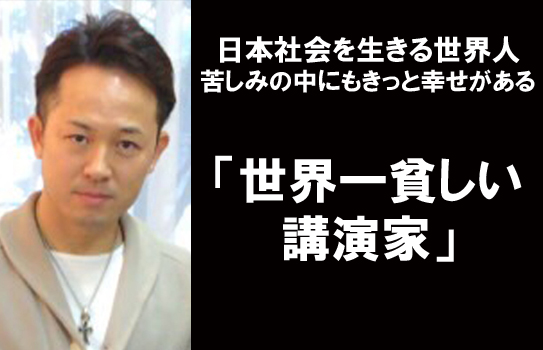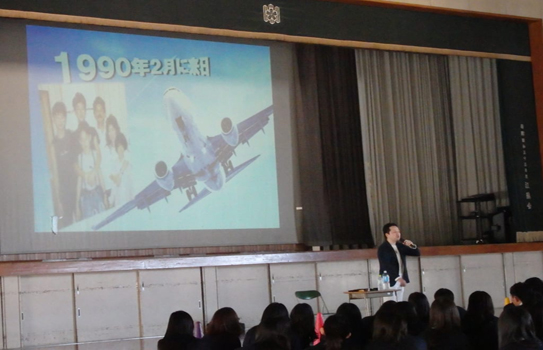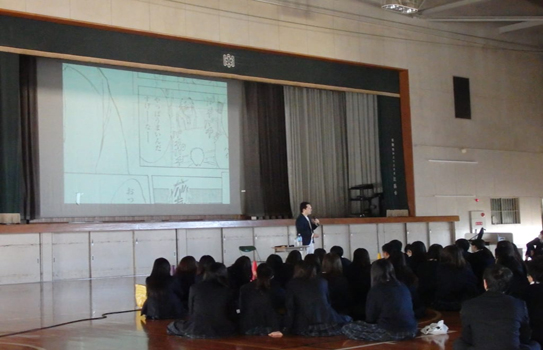|
Anderson Hyuma Gushi is a third-generation
Japanese-Brazilian who immigrated to Japan 20 years ago. Haunted by abuses and
his past mistakes, he suffers from flashbacks and currently undergoes treatment
for depression and autonomic ataxia.
But Gushi has overcome his demons by
dedicating his life to people such as the solitary elderly and immigrant
children.
Gushi arrived in Japan at age 11 when his
family moved to Tsu City in Mie Prefecture.
In elementary school, the language barrier
and his foreign name led his peers to sometimes hit him, call him names, or
shout, �gGo home, foreignerl�f�f
Gushi�fs teachers also treated him as a
nuisance, making him switch classes every month.
During middle school he was regularly
assailed in the bathrooms during recess. One day, he got fed up and started
retaliating with karate moves he learned in Brazil. After that he got into
fights every day. This continued at the high school which he attended at night
while working during the day.
�gFor me, rebellion against society led to
delinquency. That was my survival mechanism.�f�f
He formed a bike gang and sunk into a life
of violence. But none of his fellow members treated him badly for being a
foreigner. Eventually, he became gang leader.
Then, one day, his father�fs acquaintance, a
high-profile businessman, introduced Gushi to some influential men, including
entrepreneurs and politicians. �gAmong the people I met was a former bike-gang
member who went on to become a company president. I became hopeful.�f�f
Gushi grew close to that president and
ended up working in the natural foods industry. But his efforts were halted
when his father passed away.
After that Gushi was plagued by interminable thoughts of death. His driving
became reckless and he caused a traffic accident. While in jail awaiting
trial, Gushi realized that about half the prisoners were old men without
work or family, who had broken the law just to eat. He asked, �gIs this
what Japan is really
like ?�f�f
This led Gushi to two decisions: First, he
would prevent other children from making the same mistakes he had. Second, he
would create an organization to help the elderly.
Gushi went to elementary schools as a
volunteer translator for Brazilian students living in Japan. To his dismay,
problems with bullying and teachers�f attitudes hadn�ft changed at all.
As of 2009, there are 267,500 Brazilians in
Japan.
In the past nine years, Gushi has given 750
talks at schools nationwide about his experiences and bullying issues. He has
been featured in newspapers and on TV for his work.
A Catholic, Gushi always wears on his
breast a medal bearing Christ�fs image.
|


 �@�@�@�@�@�@�@�@�@�@�@
�@�@�@�@�@�@�@�@�@�@�@
 �@�@�@�@�@�@�@�@�@�@�@
�@�@�@�@�@�@�@�@�@�@�@
 �@�@�@�@�@�@�@�@�@�@�@
�@�@�@�@�@�@�@�@�@�@�@



